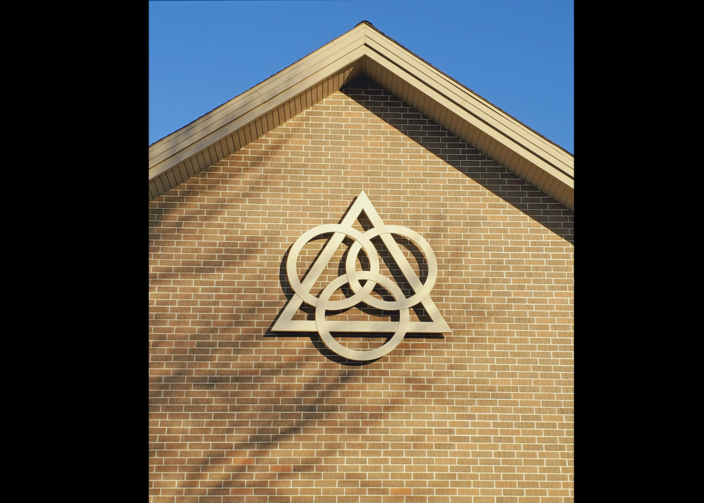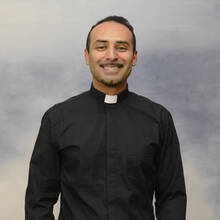What is the Trinity? Constancy.
In the second week of his 30-day Spiritual Exercises, Ignatius Loyola proposes that the retreatant imagine the Trinity gazing down upon all of humanity. The Holy Trinity envisions the vastness of humanity exactly as it is, with some people merely eking out an existence while others experience a true hell. Ignatius invites the retreatant to imagine the Trinity deliberating over the decision to send the Son to this world even in the midst of its brokenness. This Sunday’s readings for the Solemnity of the Most Holy Trinity reveal that same sort of divine deliberation, which encourages readers to place their trust in a God whose love remains constant even when humanity’s loving response does not.
This is indeed a stiff-necked people; yet pardon our wickedness and sins, and receive us as your own. (Ex 34:9)
Can you recall a time when brokenness revealed God’s love to you?
How does the constancy of Jesus’ self-emptying love for the world affect you?
How can the church today be less of a “stiff-necked people?”
In this Sunday’s first reading from Exodus, a familiar pattern of sin-repentance-renewal emerges. Some context is missing. Earlier in this chapter one learns that an enraged Moses had smashed to pieces the first set of stone tablets, and with them the written Law of God, because of the sin of the golden calf (Ex 34:1-4). “This is indeed,” says Moses to the LORD, “a stiff-necked people” (Ex 34:9). In spite of this, in this Sunday’s first reading Moses tries a second time to transmit the word of the LORD to Israel.
In Exodus, when God meets Moses on Mount Sinai, God also meets humanity in the midst of its complicated reality. In today’s Gospel, likewise, Jesus reveals the nature of the Father’s love for this same complicated humanity.
As the meeting between God and Moses continues, the drama heightens. The LORD and Moses meet each other halfway, as Moses goes up to the highest point of Mount Sinai, God descends down from up above. “Early in the morning Moses went up Mount Sinai,” meanwhile, “having come down in a cloud, the LORD stood with Moses there” (Ex 34:4). In the following verses, the LORD reveals the nature of divinity as merciful, gracious, slow to anger, an abundance of kindness and fidelity. It is this last attribute, fidelity, that is worth reflecting on in today’s context of the Most Holy Trinity.
“Fidelity” is a translation of the Hebrew word emet, a word whose fundamental meaning is “truth.” Emet also conveys a sense of “regularity,” as in that which is stable and consistent. Humanity’s “regularity” is its inability to remain committed to the covenant. Divine emet, by contrast, is compassion and forgiveness. The God of Israel is the God of second chances. It is God’s consistent nature to take us as we are, over and over again. The promise of divine consistency is God’s response to Moses’ plea, “This is indeed a stiff-necked people; yet pardon our wickedness and sins, and claim us as your own” (Ex 34:9).
In Exodus, when God meets Moses on Mount Sinai, God also meets humanity in the midst of its complicated reality. In today’s Gospel, likewise, Jesus reveals the nature of the Father’s love for this same complicated humanity. In every age, the Father’s constancy remains the same. “For God so loved the world that he gave his only Son, so that everyone who believes in him might not perish but might have eternal life” (Jn 3:16). In Greek, the verb “to believe” also means “to trust.” No one will perish who trusts in the steadfastness of a divine love that consistently takes humanity as it is. According to this divine logic, those who bring their worst self honestly to the Blessed Trinity will be met with abundant love. Trust in that kind of God has the potential to change even the most hardened heart.








